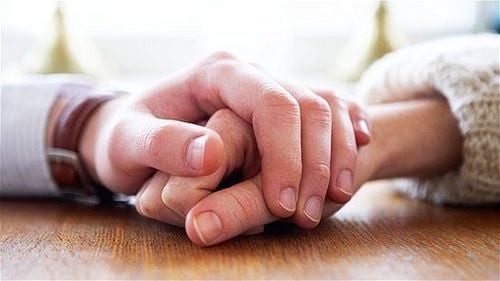This is an automatically translated article.
Articles by Master, Resident Doctor, Doctor Nguyen Thi Hang - Laboratory Doctor - Laboratory Department - Vinmec Times City International Hospital
Reiki is a healing method developed in Japan in the 19th century by master Mikao Usui. Reiki method works to reduce stress, fatigue, relax the body and be treated in a completely natural way. Learn about the practice of Reiki for great experiences.
1. What can I expect from a Reiki practice?
There is no template for a practice Reiki session (in terms of method and time of practice). A practice session hosted by anyone with training, be it a doctor, a health professional, a friend or family member, or even yourself if you have been trained in Reiki. Furthermore, Reiki does not require any specific practice environment, quiet places are preferred. Even so, Reiki can be practiced anywhere, regardless of the surroundings. The infusion of Reiki energy can provide instant comfort in any situation, such as a cold or flu, or after an injury or surgery.
This article will outline what Reiki participants will receive in a practice or therapy session from an expert or even from a friend who has trained through Level 1 Reiki.
2. Who should I meet to start learning Reiki practice?
To make sure you have the best experience, take your time and choose someone (expert or friend) with whom you are comfortable and who meet your requirements. While a friend doesn't have the experience or level of an expert, if there is comfort and openness between the two, receiving Reiki from a friend will be a particularly bonding experience. You will need a facilitator who can describe the process in detail and show you how a session should go. Perception is very subjective, however, clearly defining the route from the instructor will help you feel more comfortable during practice.
3. What will the Reiki practice space be like?
A quiet setting where you won't be disturbed is an ideal space. Reiki experts always have an ideal space for learners to visit. Not only that, but they can also create an ideal space when the practice of Reiki takes place at home. They often play soft music during practice as a way of reducing background noise, but let the instructor know if you prefer a quiet space.
For patients in hospitals, nursing homes or healthcare facilities, a Reiki reception session lasts 15-20 minutes while in some private facilities the practice takes place in about 90 minutes.
4. What will be the process of accepting learners?
Some professionals have application forms or conduct a health interview, especially if the practitioner is trained in wellness or manual therapies, such as reflexology. However, as Reiki has evolved as a folk practice rather than a wellness intervention, the adoption process will be different from conventional forms of health care.
The expert will explain the processes as well as learn about the learner's wishes. Let the professional know about your health, whether there is a problem when you lie flat on your back or there are areas that are sensitive to touch. In hospitals and healthcare settings, professionals will consult before touching your body.
5. What does a Reiki practice session include?
A hands-on Reiki session occurs when the participant is dressed comfortably, lying on a treatment table or in a comfortable sitting position in a recliner.
Normally, the transmission of Reiki energy will be done through light, non-invasive touch. The hands will be placed in positions such as the head, front and back of the body. Hand placement should never be sensitive and must not be pressurized.
Some hand positions are placed in another location such as the leg or arm area when needed (eg, where there is a wound or scar after surgery). Professionals can keep their hands off the body (for example, in open wounds or burns), and it is also common to infuse Reiki this way.
6. What will the experience be like?
“I feel refreshed and thinking more clearly”. "I think I fell asleep." "I can't believe how hot your hands are." “I feel more relaxed even after the massage.” "My headaches are gone." These are some of the things people often say after participating in a Reiki practice.
Reiki's experience is subjective, subject to change, and needs to be delicately felt. Reiki recipients often feel the heat radiate from the hands of the Reiki transmitter, but for those who transmit this energy, they feel their hands are cool and comfortable. Reiki energy flows through the body like rhythmic waves, moving throughout the body with fluctuations in the position of the hands.
Many people find the experience with Reiki really comfortable and pleasant. An interesting study has shown that people who receive Reiki energy often feel they are hovering in the threshold of consciousness, and perceive their surroundings in a profound, clear way. Some people fall into a deep meditative state like sleep. The experience with Reiki is so dramatic, for some people the change may not come immediately, but they will feel the positives afterward. The most common experience with Reiki is its ability to release tension and a deep sense of relaxation.
Reiki is cumulative, even if you don't pay much attention at first, you will still notice noticeable changes after a while of practice. Aside from the almost immediate changes Reiki brings, you can feel a few other changes taking place during the day: stronger digestion, feeling more focused, and deeper sleep.
7. What should I do in my practice session?
After you've taken the time to find a trusted expert guide, what can you do to feel comfortable throughout your Reiki practice? Here are a few suggestions for you:
If you have music that you especially love, as well as bring a sense of relaxation, ask a professional to use it. You can also request a quiet space if you wish. Address your own personal needs so you can relax before you practice. If you feel shy about touching, ask a professional to map out hand positions so you can understand the process before things begin. Let the expert know your needs before you start. For example, if you have trouble breathing and feel uncomfortable lying flat, say so. Or tell the specialist that you just had surgery and don't want to touch the scar site (the specialist can raise the arm at this location). If you are pregnant or have digestive problems, sleeping on your stomach may not be possible. Let your specialist know about those issues. You will gradually feel more relaxed during the practice. If you feel uncomfortable, adjust your position at any time. Ask for anything that makes you more comfortable, such as a mattress or blanket. This is a special time and the experts are always there to help.
Receiving Reiki Energy is a great passive experience. Don't try to relax, let Reiki help you do it. Your status will change spontaneously during the process of receiving Reiki. Your job is to simply relax, enjoy the music, or simply feel your breath or the sensations Reiki brings.
8. What happens after a practice session?
There will not be a diagnosis or examination after a Reiki session. Experts can offer a few common-sense suggestions to help you take care of yourself after practice sessions, such as drinking water and doing what your body wants.
Although people often end a Reiki session feeling refreshed, they sometimes find themselves feeling more tired in the evening than usual. Don't take this as an adverse reaction, it's the body's self-healing response, which is something you need to be aware of. In addition, participants who practiced Reiki also reported feelings of calmness, mental clarity, and deeper sleep.
9. How many practice sessions should I attend?
The expert can give you suggestions on the number of practice sessions. Four sessions is a common suggestion given, this is the time to help you evaluate the benefits that Reiki brings. Talk to your professional to arrange sessions to suit your needs and schedule.
It can be said that the practice of Reiki is a therapy that can bring a lot of benefits. Learn about hands-on Reiki so you can practice and have more great experiences.
Please dial HOTLINE for more information or register for an appointment HERE. Download MyVinmec app to make appointments faster and to manage your bookings easily.
Translation source: https://www.takingcharge.csh.umn.edu/what-can-i-expect-typical-reiki-session














